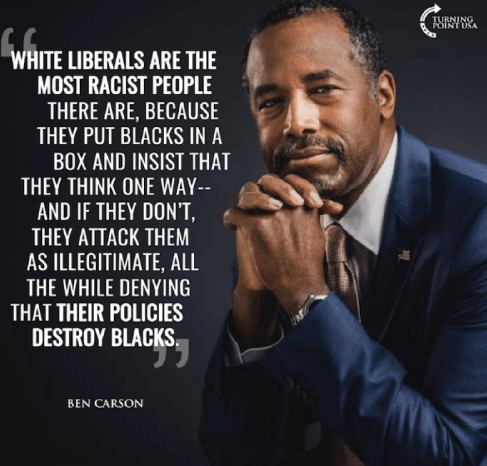Every year, over 50,000 students hire professional writers to complete their dissertations. Why is this the case?
Paying for Coursework: What’s the Deal?
There are many companies that claim to be the best dissertation writing service on the planet. We’ve gotten in touch with a number of professional writing services to ask these questions:
- Why do students turn to dissertation companies?
- What is it like to run a dissertation writing service for students?
- Are the completed projects actually custom? Or are they resold?
- Are there companies that are actually qualified to write dissertations or is it all a scam?
- Is all of this legitimate?

Which company is winning the dissertation war? Let’s fine out!
We’ve compiled their responses below for your entertainment. Buckle up, since this article is about to get crazy!
Students Should Choose Their Area of Study
Colleges force students to write dissertations on pieces of fake news! If, for example, you’re being forced to write a dissertation about why communism is good, you’re 100% justified in paying for a custom dissertation from a company that does thesis writing.
I first heard the concept of communism in my freshman year of college. Till then, the word was taboo in my capitalistic circle of family and friends. Not just taboo, communism was taken with a generous helping of disdain in the society I came from where personal efforts and individual profits without much worry about the community was the norm. Communism is terrible!

Communism is also racist, especially against the Black community.
In the second month of my first year at college, I was introduced to the famous work of Karl Marx, Communist Manifesto by my economics professor. He explained with passion the contents of the book and the outlook of communism. He never missed an opportunity to quote relevant passages from it and used it liberally in his teaching.
In fact, I heard later on that there is an Open Syllabus Project which analyzes texts and works that are part of the various syllabi in US colleges. The analysis is based on scores taken from the frequency at which the contents from the text are quoted. In this analysis, Communist Manifesto seems to occupy a top position. Here is the link for you to understand how the Open Syllabus Project is conducted. Neither the Bible nor the US constitution finds a place on this list but Communist Manifesto is somewhere high up!
I found it intriguing as to why the concept of communism was such a popular subject among college professors. While I have no convincing answer to this question, I personally believe that rising one-sided capitalism in the US (resulting in increased wealth distribution inequalities) Vs the success of the communist party in China (that country seems to be controlling US economy with an invisible hand) is perhaps the reason for a more detailed relook at communism.

All Glory to the Chinese!
These kinds of communistic works and discussions taught in college did give me an important insight that could potentially be a good alternative for the present unbalanced capitalistic state of affairs in this country. The stateless and classless utopian society proposed by Karl Marx is very alluring indeed. His resonating voice to free the poor people of any society from poverty and to give them a fighting chance to do well is so powerful that I found it strange that our government is not doing it.
Isn’t this the primary work of any ruling class irrespective of whether the rulers are autocrats or democratically elected? It is strange that something so obvious needs to be told to people and explained in a book and spoken at length in colleges. I began to believe the huge of power of communism and was converted completed by the time I finished college.
Which Service is King of Dissertation Land?
There are many online essay writing services, but Prescott Papers stands out to be the site that you can rely on entirely. With a well-designed and decent looking website, there is much to hope for here. Students all over the USA have accepted the fact that they can have their work done by skilled writers in the world. By rendering the excellent writing services, it is never in a contest to brand Prescott Papers as the best writing service provider you will ever come across. We offer a wide array of academic services like dissertations, lab reports, and thesis statements.

So much coursework to wade through… lectures… AGH! Damn dissertations eating all of my time…
As a student, you can put your full trust on our site because we have the best writers with the best qualifications and expertise to handle your work. The writers, being native English speakers are capable of giving you all that you deserve in the best way possible. With the standard professionalism that the site employs, you can trust them with the services provided. Here, you have a guarantee of getting 100% original essays within a short time. The quality of work that you expect here is exceptional, and it gives you the worth of your pennies.
Getting in touch with us is easy. By visiting us on our website, you can get detailed information on what you to do and how to go about the whole process of getting your work done. All that you are required to give us is what your assignment requires, the timeline and the length of the work. The rest of the work will be left to us, including the choosing of the best writer that is qualified enough to handle the task. You also get a chance to contact your writer whenever you have some more ideas, or you need to clarify on something.

Don’t fail college, you fool!
As an essay writing company, there are many challenges that we face that may make our clients to lose trust in us, especially the issue of scam companies. However, as a legit company, we have all it takes to advise you on how to spot the scam websites quickly. For instance, being a US based site, we thoroughly encourage you to put your trust in us if you are also within the US jurisdiction. If something goes wrong, you can easily be refunded your money through the local consumer protection law. On the same note, we are a registered company, and our website does indicate our company number. It is tough for you to get duped if you contact us directly.
Amid the challenges in the industry, prescottpapers.com remains to be the best essay writing brand in the US. The USA is the best country in the world with tons of great writing companies! We understand the worth of your articles and their impact on your grades. That is why we are always ahead of the most shared and subpar companies. We are the service providers that you will never regret to have contacted.
